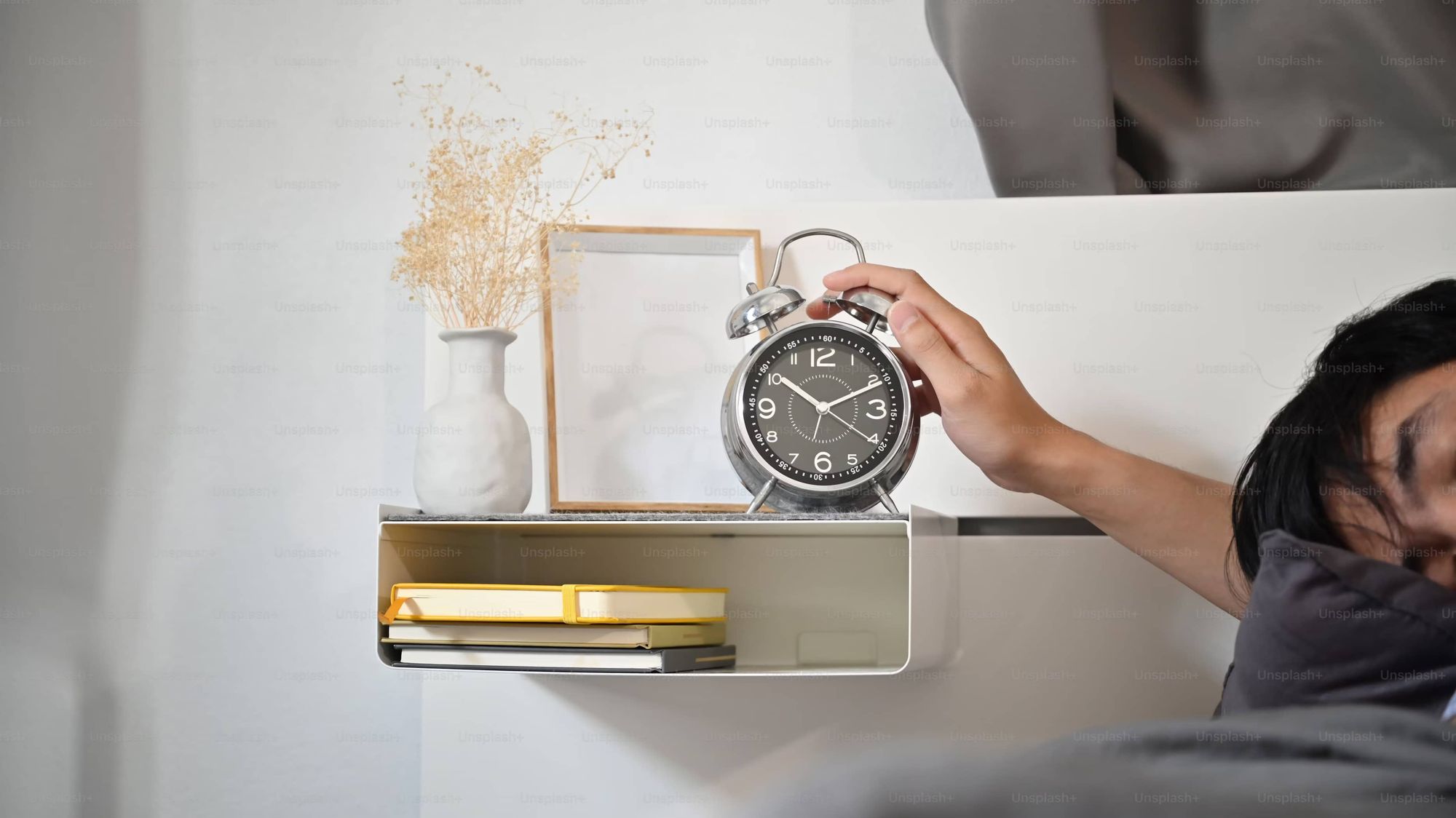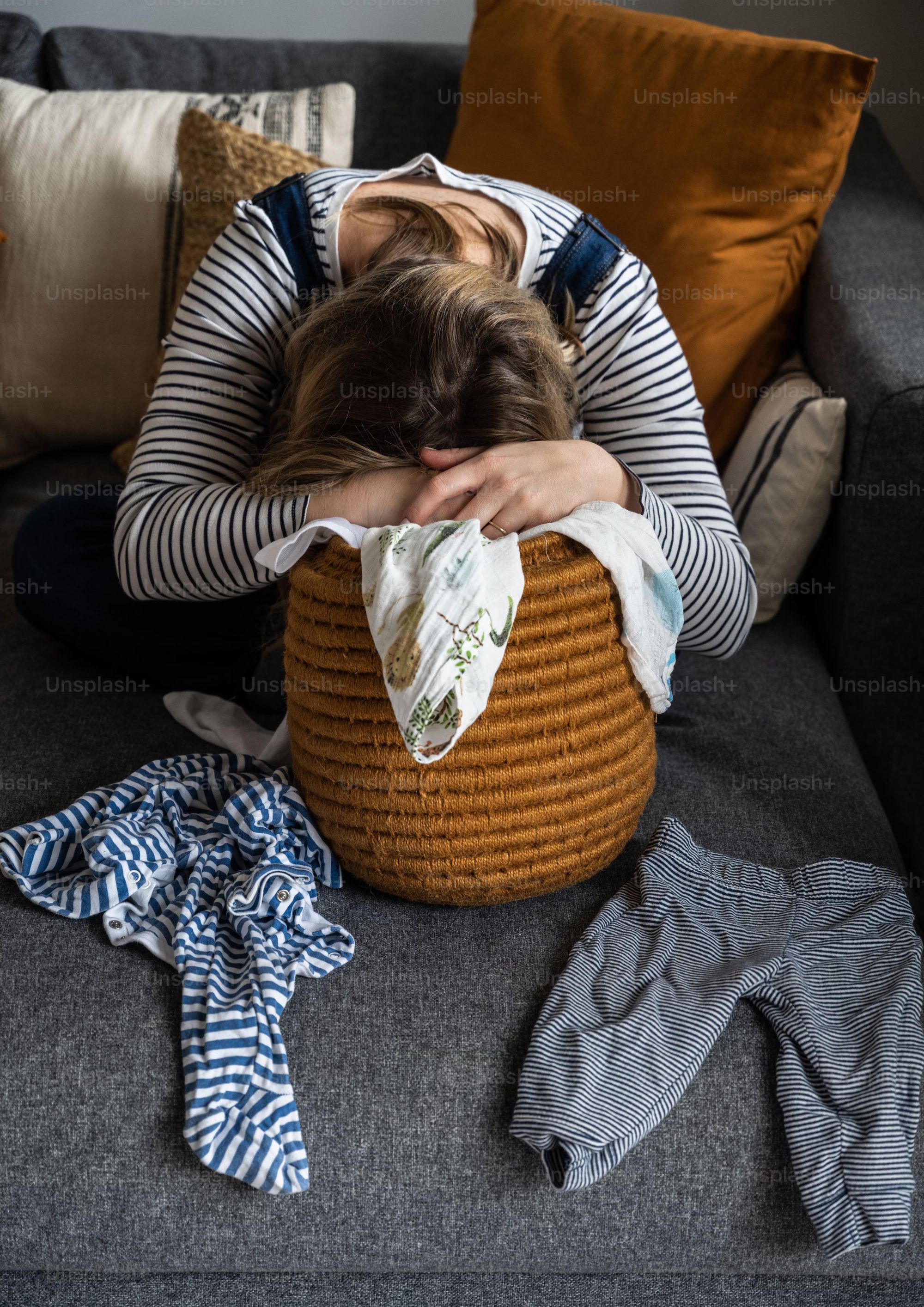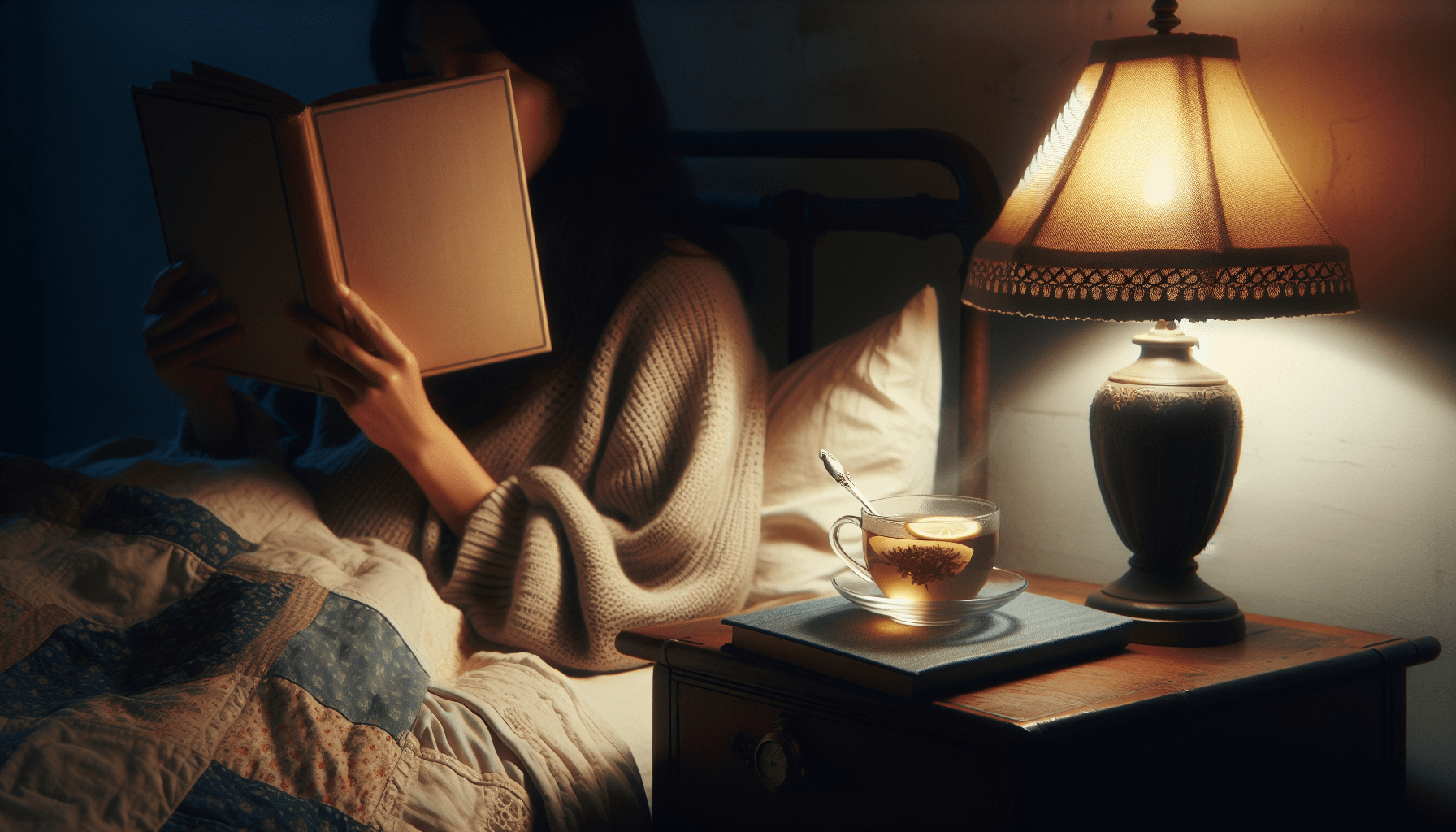When Is the Best Time to Wake Up?
A good night's sleep is the best start to the day. But when is the right time to wake up?
The best way to have a good day is to have a great morning. There's nothing better than waking up after a long peaceful sleep, feeling fresh and set to take on the challenges you know are waiting for you. Sadly, this situation feels like a luxury nowadays, when you have 25 hours of work, endless deadlines, socializing, eating, and recreating to fit into a 24-hour day. Of course, sleep time is the first to suffer as you try to keep up with it all!
Ultimately, one of two things happen – either you stay up really late trying to finish everything or you get up earlier than the Sun to get a head start. Choosing either of these options is a short-term win but has long-term consequences – including on your physical and mental health.
Want to avoid this and be the best, brightest, and most productive version of yourself? The answer is simple – find your best time to wake up to make sure you start your day with enough sleep behind you!
But determining the best time to wake up hinges on more than just choosing a random hour. It depends on your personal equation of sleep patterns and lifestyle. So to find your ideal wake up time, you need to establish these factors and how they work for you.

What's in this article
The best time to wake up, according to the internet
Now I'll be the first to admit, I'm no sleep doctor. I'm constantly finding myself waiting for Sunday to catch up on all my sleep deprivation from the week. So just like any other person finding their best time to wake up, I looked to the aggregated advice of the internet for help. Here's what it told me, in a nutshell:
What is the healthiest time to wake up?
The optimal time to rise is between 6:00 a.m. and 7:00 a.m., as this coincides with the natural start of daylight. Getting up at this hour promotes proper regulation of your internal body clock for improved sleep quality and overall health.
Is 5 am a good time to wake up?
There's a whole club of CEOs and leaders that swear by getting up at dawn. Rising at 5 AM has its advantages. It provides a calm morning schedule and enhances efficiency before the usual afternoon slump, leading to decreased stress levels and betterment of one’s mental well-being. Plus, there's just something about this time – so peaceful, with the household all asleep, and nobody vying for your attention and time.
But there are caveats to this golden rule. Having a regular sleep schedule that lasts more than just a few hours is crucial for getting quality rest and avoiding negative effects on your health. So if you sleep only by 1 or 2 AM but insist on trying to wake up at 5 AM, you're not doing yourself any favors.
How can I determine my ideal wake up time?
The best time to wake up may vary based on your individual sleep requirements, daily routine and the need for maintaining a regular sleeping pattern. It's important to also consider how you fall asleep based on your chronotype as well as any obligations you have during the day that needs you to rise early and stay fresh.
What is a chronotype and how does it influence when I fall asleep?
Your chronotype is your biological tendency towards early or late rising. Basically, if you like waking up early, you're an early bird, and if you like staying up late instead, you're a night owl.
The science of deep sleep and wake up cycles
So now we know what the internet thinks about sleep and wake up times. Does science agree? To understand that, let's first talk a little bit about how sleep works.
Sleep is composed of different stages – without rapid eye movement, deep sleep, rapid eye movement (REM), and repeat. Light sleep is when your brain is a bit more alert, and as you go deeper, you enter REM where you have vivid dreams and more brain activity. One night of sleep typically sees the cycle repeat four to six sleep times, each lasting 70-120 minutes. As the night progresses, REM sleep becomes longer.
To feel well-rested in the morning, it’s beneficial to wake up at the end of an REM cycle. This can be difficult due to variations in cycle length and challenges in tracking precise timing.
How much sleep do you really need?
The recommended sleep duration for adults (18 to 64 years), according to the US National Sleep Foundation, is 7 to 9 hours per night. Teenagers require slightly more at around 9 to 9.5 hours to support their brain development and overall health. For newborns, it is advised that they get approximately 14-17 hours of sleep during their first few months.
While there are general guidelines for how much sleep one should aim for each night, these numbers may not apply universally as individual needs vary greatly.
But if you're in a position where even you know that the amount of sleep you're getting has to be unhealthy, have you thought about what impact this can have?

The impact of sleep quality on your circadian rhythm
Both inadequate sleep and excessive sleeping are associated with significant health risks such as an increased likelihood of heart disease, stroke risk, obesity risk weakened immune system functions, and higher mortality rates. They can also have detrimental effects on mental health, exacerbating conditions such as depression and leading to mood swings, anxiety, impulsive behavior, and cognitive challenges. But the primary effect is on your body's circadian rhythm.
The circadian rhythm is your brain's natural sleep-rise cycle. Basically, through the day there are hours when your brain is more alert than tired, and vice versa. People are generally their sleepiest in the afternoon (siesta time) and in the early hours of the morning (2-4 AM).
The better your sleep quality is, the better your circadian rhythm. If you have rigid times to sleep and wake up, your body will naturally adjust to it and work accordingly — if you keep trying to sleep at 10 PM and wake up at 6 AM, your internal clock will automatically want to get to bed during these hours.
Your circadian rhythm also produces hormones that help your body regulate its sleep cycles. These can be threatened if you do not get good quality sleep.
Excessive exposure to artificial light, for example, during nighttime hours can disrupt the production of melatonin – the hormone responsible for regulating sleep. This disruption leads to difficulties in falling asleep and transitioning between sleep cycles, resulting in fragmented or poor-quality sleep. Sleeping with a light on has been linked to various negative health consequences such as eye strain, weight gain, and an increased risk of certain cancers.
Stress can also impact our ability to fall asleep properly by increasing levels of stress hormones like cortisol. Such hormonal imbalances caused by inadequate sleeping habits can hinder growth and cell repair processes within the body.
Figuring out your ideal wake up time
So science shows that sleeping well and having a good wake up time is super important. Does it also recommend a good wake up hour?
The ideal wake up time is not a one-size-fits-all concept. It varies based on individual sleep needs, chronotype, lifestyle commitments and whether you have the goal of maintaining consistent sleep patterns.
But this does not mean you should not even try! Let's see some ways for you to find your best time to wake up:
Pay attention to signs that you're not getting enough rest
Chronic lack of adequate sleep can cause impaired brain functions, such as difficulty concentrating, decreased coordination and learning abilities. Mood disturbances like irritability, impatience, mood swings and an increased risk for depression or anxiety may also be indicative of insufficient sleep.

Insufficient amounts of sleep have been linked to weight gain due to hormonal imbalances affecting hunger cues and motivation levels for physical activity.
Individuals with conditions like bipolar disorder, ADHD or depression (Note – these must only be professionally diagnosed! See a licensed medical professional even if you experience symptoms) may be suffering from a deficit in their quality of sleep. A weakened immune system that makes one more susceptible to infections is another potential consequence of not getting enough rest.
If you relate to any of these conditions, it may be time to consider what's going wrong with your sleep.
Understand your chronotype and internal clock
About 55% of people have a ‘bear’ chronotype that aligns with traditional daytime hours--they wake up with the Sun, are the most productive in the early hours of the day, and lose energy by the evening, wanting sleep. Only around 10% have a ‘dolphin’ chronotype – these people feel tired during the day, and struggle to fall asleep and stay asleep. But they're filled with energy during the night. About 15% of people, each, have the 'lion' chronotype which makes them wake up before the Sun and go to bed way early; or the 'wolf' chronotype, which essentially makes them night owls.
Aligning your internal clock with your chronotypes can significantly improve overall sleep quality as well as energy levels and mood throughout the day, ultimately affecting performance and daily activities.
Interestingly enough, your chronotype can shift throughout your life, so you need to pause and adjust when needed. Switching over from a late-night schedule to early mornings can result in decreased stress levels along with improved mood.
Don't underestimate natural light exposure
Natural light plays a crucial role in regulating our body’s internal clock. In the morning, exposure to natural light stimulates the release of hormones such as cortisol and adenosine, which help maintain wakefulness and promote sleepiness.
Plus, natural light helps you get out of bed in the morning and do something to energize your bones and mind. To ensure you get lots of it, you can try aligning your bedroom windows with your bed, have breakfast outside or near a sunny window, and most importantly, avoid turning on artificial lights as soon as you wake up.

A consistent sleep schedule matters
Ensuring a regular sleep schedule is crucial for synchronizing with your body’s innate circadian rhythm.
To maintain a steady sleep routine, consider establishing fixed bedtimes and wake up times (even on weekends) while gradually adjusting if necessary. Create a nighttime routine by taking a shower, putting your phone away or reading before you sleep, and try to make an appointment or exercise schedule for when you wake up.
To gradually adjust to an earlier wake-up time, you can also slowly shift bedtime by 15-minute increments. This method allows the body to adapt better compared to sudden changes in sleep schedule.
Adopt a better lifestyle
Having consistent meal times and avoiding late dinners can also help maintain an earlier sleep-wake cycle. It’s best to limit caffeine intake in the afternoon and evening when transitioning towards a new bedtime routine.
Morning exercise has been found effective for improving sleep quality, especially if done early on instead of later at night. Preparing for the next day beforehand through meal prep and making lists can simplify one’s morning routine.
Use technology to help find your perfect wake up time
Using technology could serve as motivation or reinforcement in establishing an earlier sleeping pattern successfully.
Specialized alarm clocks are designed to meet different needs and preferences, such as the Sonic Bomb Dual Alarm Clock for heavy sleepers with loud alarms and a bed shaker, or the Loftie Alarm Clock which offers gradual wake-up sounds and serene soundscapes.
If you don't mind using your phone too much, try The Sleep Cycle app which provides useful features like Smart Alarms that use data from users’ lightest sleep phase to wake them up gently, Sleep Goals to help establish consistent sleeping patterns, and Sleep Notes for tracking daily habits that may affect their quality of sleep.
Also, if you really want to maintain your sleep schedule, why not try accountability through Boss as a Service (that's us)!
Tackle sleep inertia
Sleep inertia is a period of drowsiness experienced after waking up, which can range from a few minutes to several hours. Waking up during or immediately following REM sleep has been found to be beneficial in achieving alertness.
But as this is not always in our control you can try other things, like avoiding hitting snooze on alarms, engaging in sensory stimulation such as splashing cold water on one’s face or stepping outside into cool air and using caffeine moderately.
Cultivate good sleep hygiene
Improving our sleep hygiene involves establishing daily routines that avoid nicotine and limit alcohol consumption, avoiding long naps, and reserving the bedroom mainly for sleeping purposes. Making investments in items like supportive pillows based on preferred sleeping position, high-quality bedding materials, and comfortable mattresses or foam toppers can greatly enhance overall sleep quality.

Having a sleep environment that is cool, dark, and quiet while also using soothing scents like lavender can promote relaxation.
How BaaS helps with your wake up times
Boss as a Service is an accountability partner platform built to help you achieve all your goals, including getting better with your sleep and wake up times!
Our coaches will check in with you every day to ensure that you're sticking to your routines and winding down so you can cultivate a good night's sleep.
Final thoughts
There is no formula to find the best time to wake up; it involves considering various factors such as your sleep needs, chronotype, and the importance of consistency in sleep schedules. But be mindful of the amount and quality of sleep you need, and the consequences of getting too much or too little sleep. Use strategies and tools like good sleep hygiene and apps to help find your perfect wake-up time and tackle sleep inertia for a smoother start to your day.
Here are some more articles you might like: